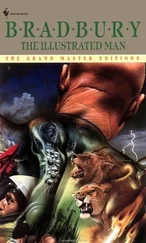Malcolm Bradbury - The History Man
Здесь есть возможность читать онлайн «Malcolm Bradbury - The History Man» весь текст электронной книги совершенно бесплатно (целиком полную версию без сокращений). В некоторых случаях можно слушать аудио, скачать через торрент в формате fb2 и присутствует краткое содержание. Жанр: Современная проза, на английском языке. Описание произведения, (предисловие) а так же отзывы посетителей доступны на портале библиотеки ЛибКат.
- Название:The History Man
- Автор:
- Жанр:
- Год:неизвестен
- ISBN:нет данных
- Рейтинг книги:3 / 5. Голосов: 1
-
Избранное:Добавить в избранное
- Отзывы:
-
Ваша оценка:
- 60
- 1
- 2
- 3
- 4
- 5
The History Man: краткое содержание, описание и аннотация
Предлагаем к чтению аннотацию, описание, краткое содержание или предисловие (зависит от того, что написал сам автор книги «The History Man»). Если вы не нашли необходимую информацию о книге — напишите в комментариях, мы постараемся отыскать её.
The History Man — читать онлайн бесплатно полную книгу (весь текст) целиком
Ниже представлен текст книги, разбитый по страницам. Система сохранения места последней прочитанной страницы, позволяет с удобством читать онлайн бесплатно книгу «The History Man», без необходимости каждый раз заново искать на чём Вы остановились. Поставьте закладку, и сможете в любой момент перейти на страницу, на которой закончили чтение.
Интервал:
Закладка:
'Oh, no,' says Howard, 'by all means, let's have an issue.'
'That doesn't delight me,' says Marvin, 'it can only open many doors better kept shut.'
'I'd like them open,' says Howard. 'I've never understood your taste for confrontation,' says Marvin. 'As Blake says,' says Howard, '"Opposition is true friendship".'
'I haven't noticed the note of friendship,' says Marvin, 'but so be it.' The telephone goes down at the other end. Howard replaces his receiver; then he walks to the window, and looks out, with pleased regard, on the wet campus.
IX
'It's a very serious issue,' says Roger Fundy, excavating into a jacketed baked potato filled with false cream, 'it's the ultimate test of whether sociology is a relevant subject.'
'Ah, what's that?' asks Dr Zachery, the micro-sociologist, a small man who works on small problems, approaching the table in his wool hat, carrying his tray, 'I've been looking for such a test for a very long time.'
'You're a reactionary, you wouldn't know an issue if you saw one,' says Fundy, 'I'm talking about the visit of Mangel.'
'The visit of Mangel?' says Zachery, sitting down and taking off his hat. 'There's no visit of Mangel.'
'A departmental memo just came round to say that Mangel's coming here to speak,' says Moira Millikin, at the further end of the table, peering down into her baby's carrycot, which lies in the aisle where the students pass back and forth. 'You know, I already had four food contacts today already,' says Melissa Todoroff, a strong-minded American lady who is at Watermouth on a year's leave from Hunter College, here to study English women, 'can anyone do me a quick calory count on this hunk of steak-and-kidney pie?'
'Mangel the geneticist?' asks Howard Kirk, sitting in the precise middle of the table, and looking about with innocent curiosity. 'Mangel the racist,' says Fundy. 'He studies the genetics of race,' says Flora Beniform, at the end of the table, 'I don't think that makes him a racist.'
'I thought we'd driven biological explanation right out of sociology,' says Moira Millikin, 'I thought we were through with all that shit.'
'Hey, any of you kids into I Cling yet?' asks Melissa Todoroff. 'You've also driven sin and evil right out of sociology,' says Flora Beniform, 'which doesn't prove there's no sin.'
'I'm all for making the subject as economical as possible,' says Dr Macintosh, 'it does mean less work.'
'A serious and well-known scholar,' says Zachery, 'very distinguished work.'
'It's obscene,' says Moira Millikin. 'Jesus Christ was a Capricorn,' says Melissa Todoroff, 'what's your sign, honey?'
'I'm a little bewildered, I think,' says Zachery, 'we believe in differentiation by class, and promote those for the tension they create. Yet not the racial ones. Now, how is that?'
'Class is cultural, race is genetic,' says Moira Millikin. 'I don't believe in astral influence,' says Dr Macintosh, 'in any case it gives an advantage to people whose mothers have good memories.'
'Of course, Flora,' says Howard, 'you know Mangel. You worked with him at the Tavvy at one time, didn't you?'
'Yes, I did, Howard,' says Flora, 'I worked in social anthropology with him. He's a fat, ugly man, he smells of borscht, he's serious and liberal, he believes we have a biology, which most of us here actually do, like it or not, and he's certainly not a racist.'
'It's all been exposed by the radical press,' says Moira Millikin, 'all that tradition. Jensen, Eysenck, Mangel. It's all been shown to be racist.'
'Don't you believe in anything, honey?' asks Melissa Todoroff. 'We can't have him, we've got to stop him,' says Roger Fundy.
The sociologists are sitting at a large plastic table, taking lunch, under the domed plexiglass and Plexiglas of Kaakinen's university cafeteria. Students talk, girls yelp, babies squall. The great fancy room towers above them, a thing here of stark places, there of wild Scandinavian frenzies. Such is the detail of design that the very food they eat seems converted into artefact: Jackson Pollock hash, Mondrian fried eggs, Graham Sutherland chicken leg are followed by David Hockney ice cream and Norman Rockwell apple pie. The sociologists eat off their trays; as they eat, they examine, with formal solemnity, the agendas for their coming meeting, turning over the stencilled pages, lifting a bean or a sausage, passing from main agenda to supplementary agenda to document A and document L and document Y, moving from egg to yoghurt. At the time when he conceived the refectory facilities at Watermouth, Kaakinen was taken by a great, democratic dream; deeply mindful of the social symbolism of eating, he was determined at a stroke to remove those distinctions between senior and junior common-room which privatize the essential communion of food, and so have the formal effect of separating, in some root way, the student from his teacher. Instead, therefore, Kaakinen invented prandial community; he made rooms, and corners of rooms, where, under one roof, in democratic babble, every sort of social mixture might occur. Thus, as the fancy takes you, you might sit over there, among rubber plants, with a view through thick leaves straight out over the artificial lake, and eat in some grandeur, at some expense; or you might sit over here, in a place of purity and simple functionalism, where, with specially designed plastic forks that look like spoons, and knives that look like forks, you may, having waited in the cafeteria line, practise contemporary eating of contemporary, plastic-wrapped food at a most modest cost. This of course, has the informal effect of separating the student from his teacher; it is the faculty who sit among the rubber plants, eating oeufs en plat and pommes frites d la chef; the students sit at the plastic tables, with their plastic implements, eating their egg and chips.
But in these matters the sociologists, in so many things the exception, are the exception. The sociology students eat in the expensive section, in order to express indignation; the sociology faculty eat in the cheap one, in order to maintain the egalitarian spirit, and save a penny or two at the same time. And today, because it is the day of the departmental meeting, there are many of them, along the long table which is somehow, historically, their table; they consume, simultaneously, the food and the agenda; they examine both with critical expressions. For, over time, the food has grown less, in quantity and quality, as economic rot sets in; meanwhile the agenda has grown longer, as bureaucratic growth occurs. They eat with dislike; they read with rue. There are two kinds of rue. There are some of them who inspect the documents as a diary of necessary or even unnecessary boredom, a poor way to spend an afternoon, a routine plod through matters of budgets and parties, SSRC research grants and examinations; there are some with higher criticism to offer, who read the agenda with an energetic scepticism, as one would read a contract from a hire-purchase company, looking in the fine print for errors, enormities, evasions, the entire sphere of the unsaid.
'I think some of us are missing the entire point,' says Roger Fundy to the table. 'The point is that genetics isn't an innocuous science. It's a highly charged area,, with deep social implications, and you have to protect your conclusions from having racialist overtones.'
'Oh, yes?' asks Dr Zachery. 'Even if that means falsifying the results?'
'If necessary, yes,' says Moira Millikin. 'Extraordinary,' says Dr Zachery. 'I think this is meant for me,' says Flora. 'Look, Roger, have you ever known me think that anything was innocuous? It's against my nature. But I know Mangel. He knows the dangers as well as you do. He happens to be a serious scientist. He's never over-stated his conclusions, and I don't agree that any results should ever be falsified. He'd like them to come out your way as much as I would, but when they come out they come out.'
Читать дальшеИнтервал:
Закладка:
Похожие книги на «The History Man»
Представляем Вашему вниманию похожие книги на «The History Man» списком для выбора. Мы отобрали схожую по названию и смыслу литературу в надежде предоставить читателям больше вариантов отыскать новые, интересные, ещё непрочитанные произведения.
Обсуждение, отзывы о книге «The History Man» и просто собственные мнения читателей. Оставьте ваши комментарии, напишите, что Вы думаете о произведении, его смысле или главных героях. Укажите что конкретно понравилось, а что нет, и почему Вы так считаете.











